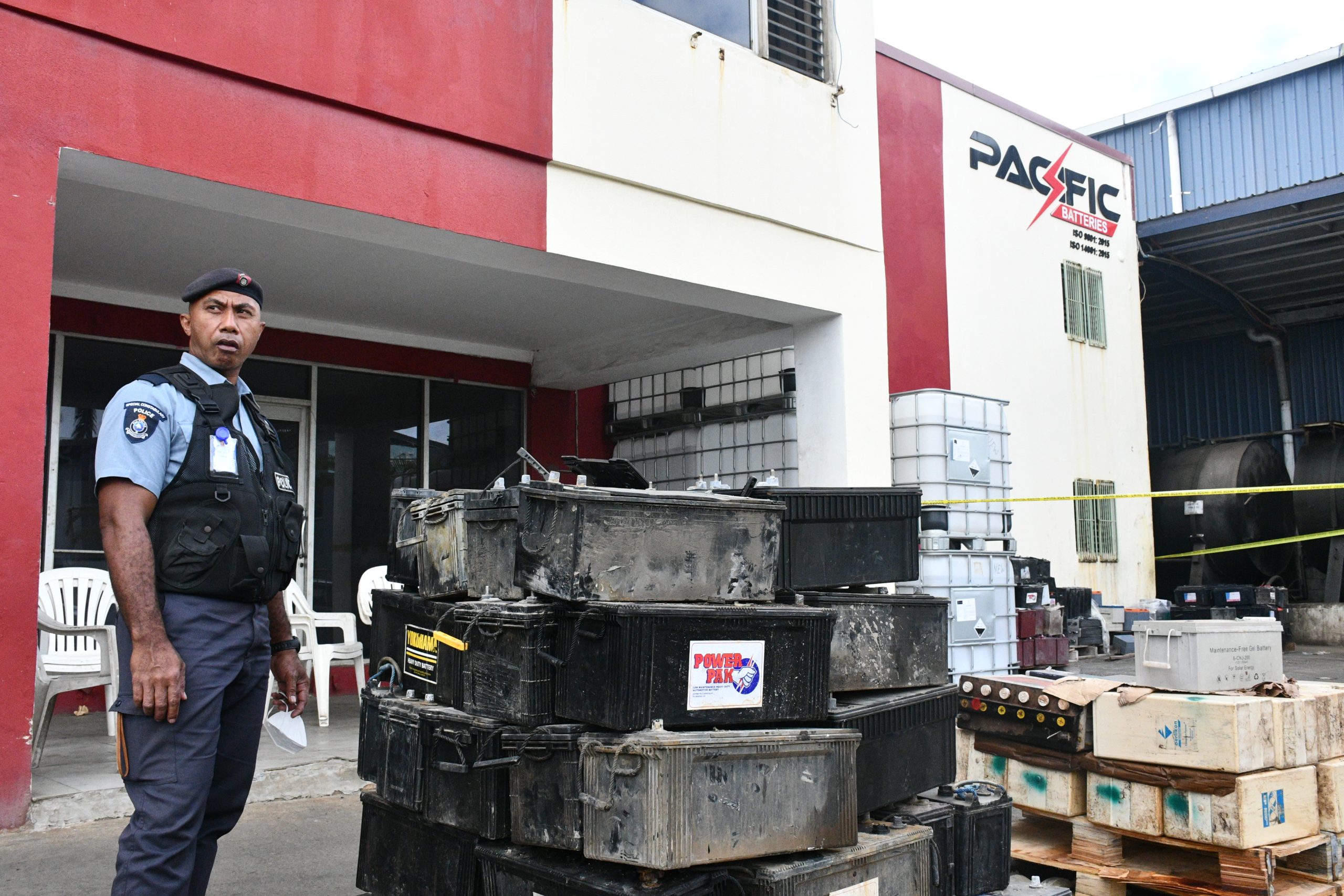ON a quiet Thursday morning, Pacific Batteries general manager Diwalar Dubey received a call that would jolt his decades-long career in the lead-acid battery recycling business.
When he arrived at the company’s Lami-based factory, the police were already there — 20 to 30 officers, he said.
What they had found wasn’t just scrap metal.
Hidden inside the casing of a battery was a suspicious, tightly packed white substance sealed within a modified container and camouflaged to appear like a regular industrial power cell.
For context, lead-acid batteries are rechargeable batteries commonly used in cars, trucks, buses, heavy machineries, solar energy storage and the likes, and contain hazardous materials.
And not just any battery, but imported batteries, according to Mr Dubey.
For a company that has spent 65 years powering Fijian homes, businesses, and heavy machinery — and more than two decades recycling batteries to prevent environmental harm — this was a chilling discovery.
The Discovery
Pacific Batteries has been collecting used/old batteries for two decades as part of its regular scrap intake operation.
They buy used batteries from all over the country, through contractors, to be recycled at its $5million plant — the only lead-acid battery recycling facility in the South Pacific.
Thursday night was business as usual for the night shift team until the battery-cutting machine abruptly jammed while slicing through one of the units.
Sensing something was off, staff manually cracked open the battery.
Inside, sealed in clear plastics, were powdery white substances.
“As usual, our boys were cutting the old batteries using a battery-cutting machine,” Mr Dubey told The Fiji Times.
“The machine broke down when it was cutting one of the batteries, prompting the team to investigate the cause.”
A quick search on Google will show that casings of lead-acid batteries are typically made of polypropylene (PP) plastic as it is chemical resistant, heat resistant and for its structural strength.
Therefore, when the machine broke down and couldn’t cut through that one battery, the night shift team were curious.
“They had to use an axe to break it open.
“Opening it, they found that the inside of the battery has been modified. Instead of the plastic cover, there was metal underneath it and inside it was those clear plastics with the white substances.
“The people who had altered the casing then covered the metal with molten plastic, making it look like any normal lead-acid battery casing.
“When they broke through the metal using an axe and found pieces of the battery, but when they turned it upside down they found the clear plastics underneath it with the white substances.”
A staff immediately alerted police from the Lami Police Station who were patrolling the area that night.
On Friday, Police Commissioner Rusiate Tudravu confirmed that the substances tested negative for illicit drugs.
However, two known ingredients of methamphetamine were found in it warranting further testing through the assistance of the New Zealand Institute for Public Health and Forensic Science.
“We didn’t know what it was. We just knew it wasn’t supposed to be in there,” Dubey said.
‘Not Ours’
Mr Dubey said the eight batteries the white substances were found in wasn’t one of Pacific Batteries’ local brands.
It was an imported product labelled “Energy Power” and ‘Heavy Duty Group 31’.
Research shows that batteries from this group size are often used for trucks, marine engines, generators and heavy machineries and equipment. It is a commercial starter battery often found in the transport and industrial sectors.
“It was not a Fiji-made battery. Not ours. Imported. Modified,” he stressed.
“It came from a scrap collector. But our vehicle went to buy it, so we have the records.
“The camera, the truck logs, the batch — we keep track of everything.”
Unanswered Questions and a Warning
How did the battery get into Fiji?
Who modified it?
Was it modified locally or from oversease before being imported?
Was it meant to be collected by someone before reaching the Lami plant?
These remain unanswered.
According to Mr Dubey, there are only 21 licensed battery importers in Fiji but under the current market, there are no fiscal protection for these 21 importers, giving anyone the ability to import lead-acid batteries into Fiji.
“There are 21 importers in Fiji, and government duty is very less so anybody can import battery.
“Tax is only 15 per cent so how can we compete with China or any other country when anybody can import from these countries?”
Conclusion
Pacific Batteries will continue doing what it’s done for six decades: powering Fiji responsibly.
But Mr Dubey hopes this incident will spark tighter controls on imports and more awareness around unconventional trafficking routes.



